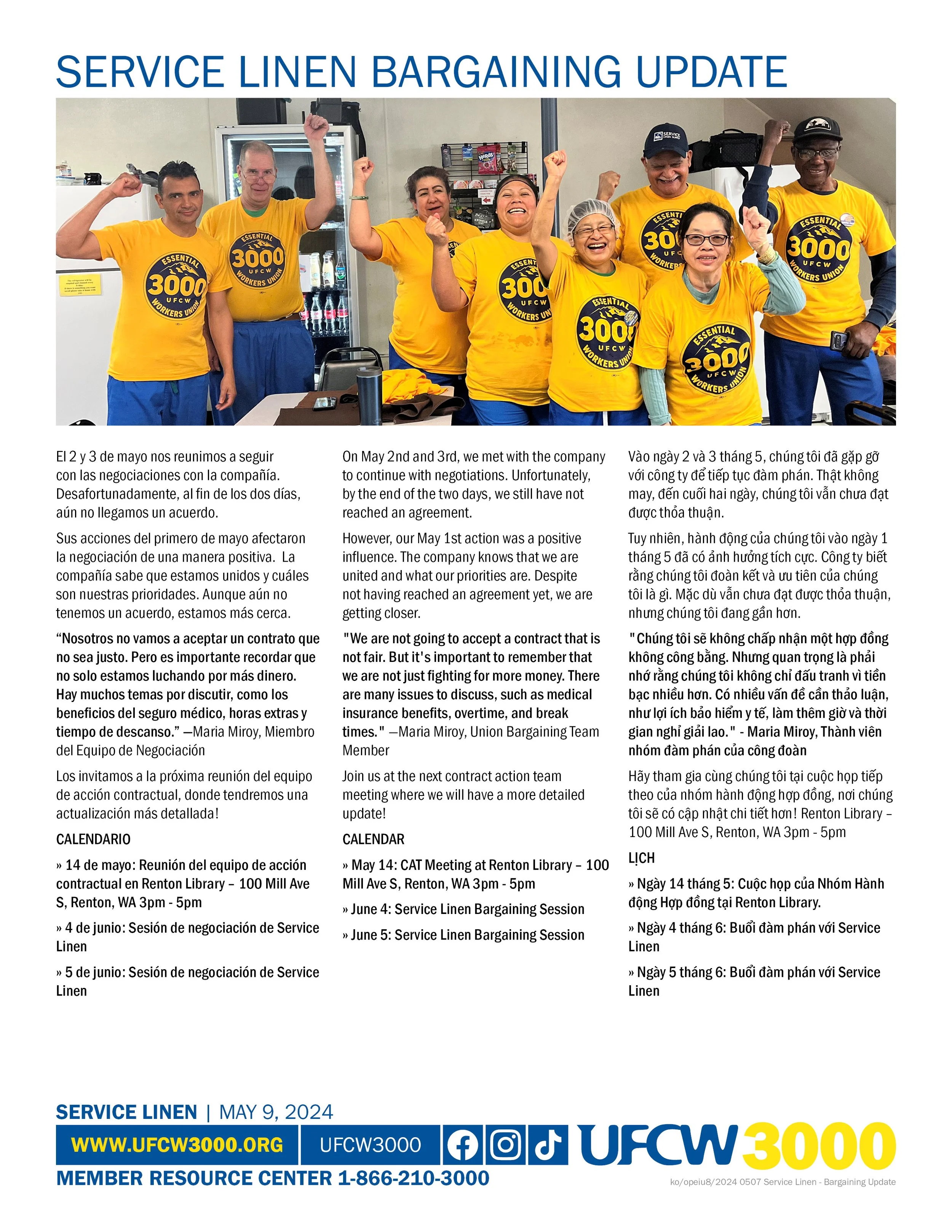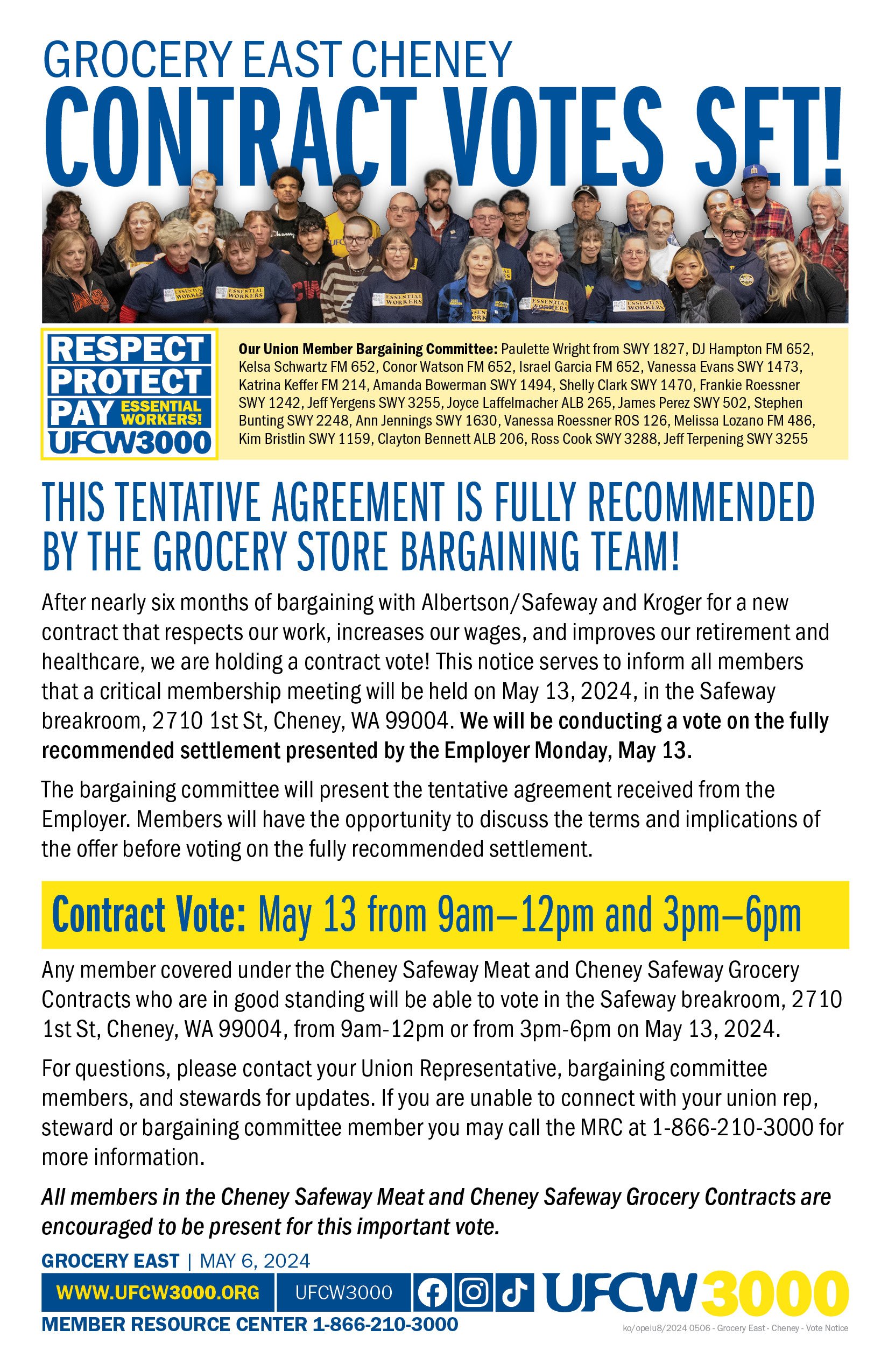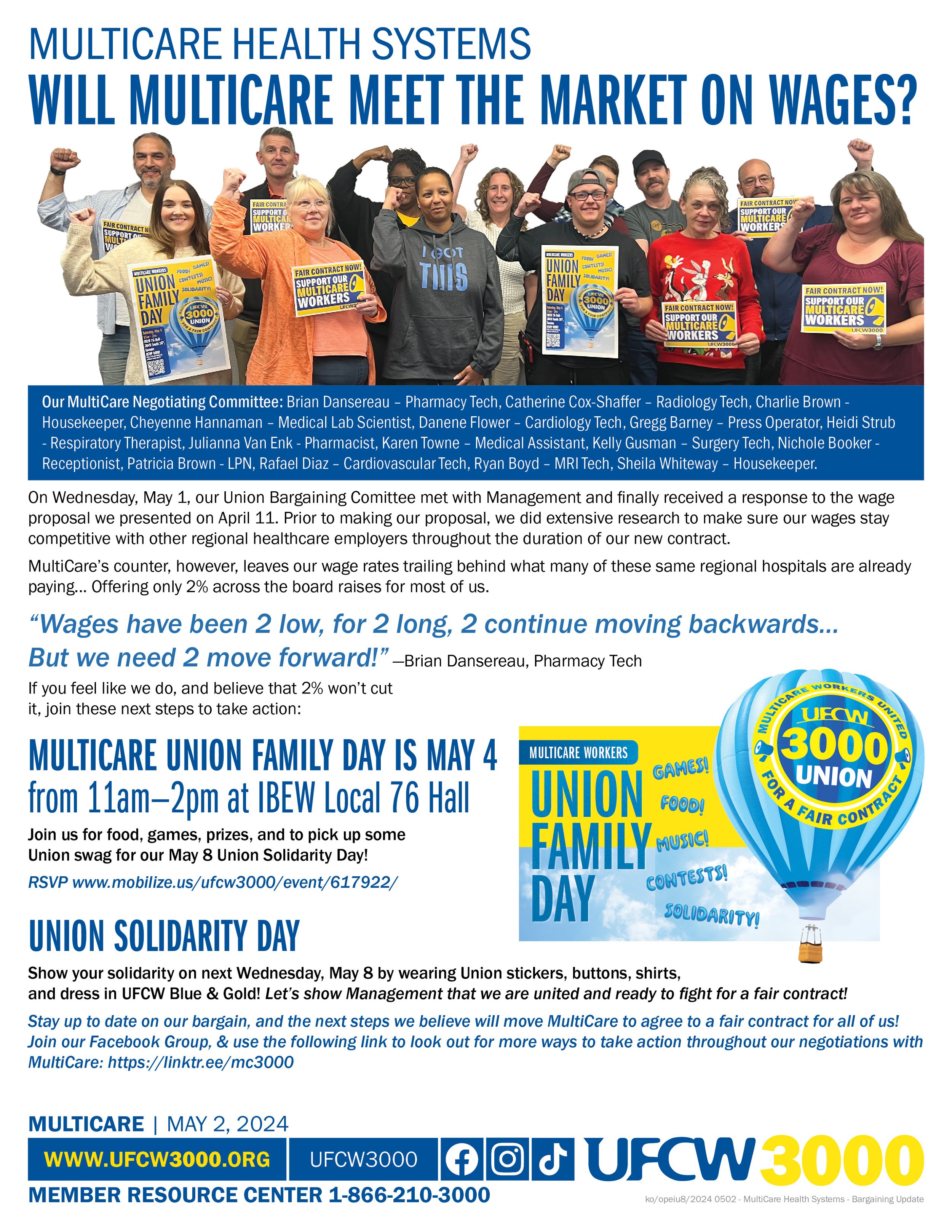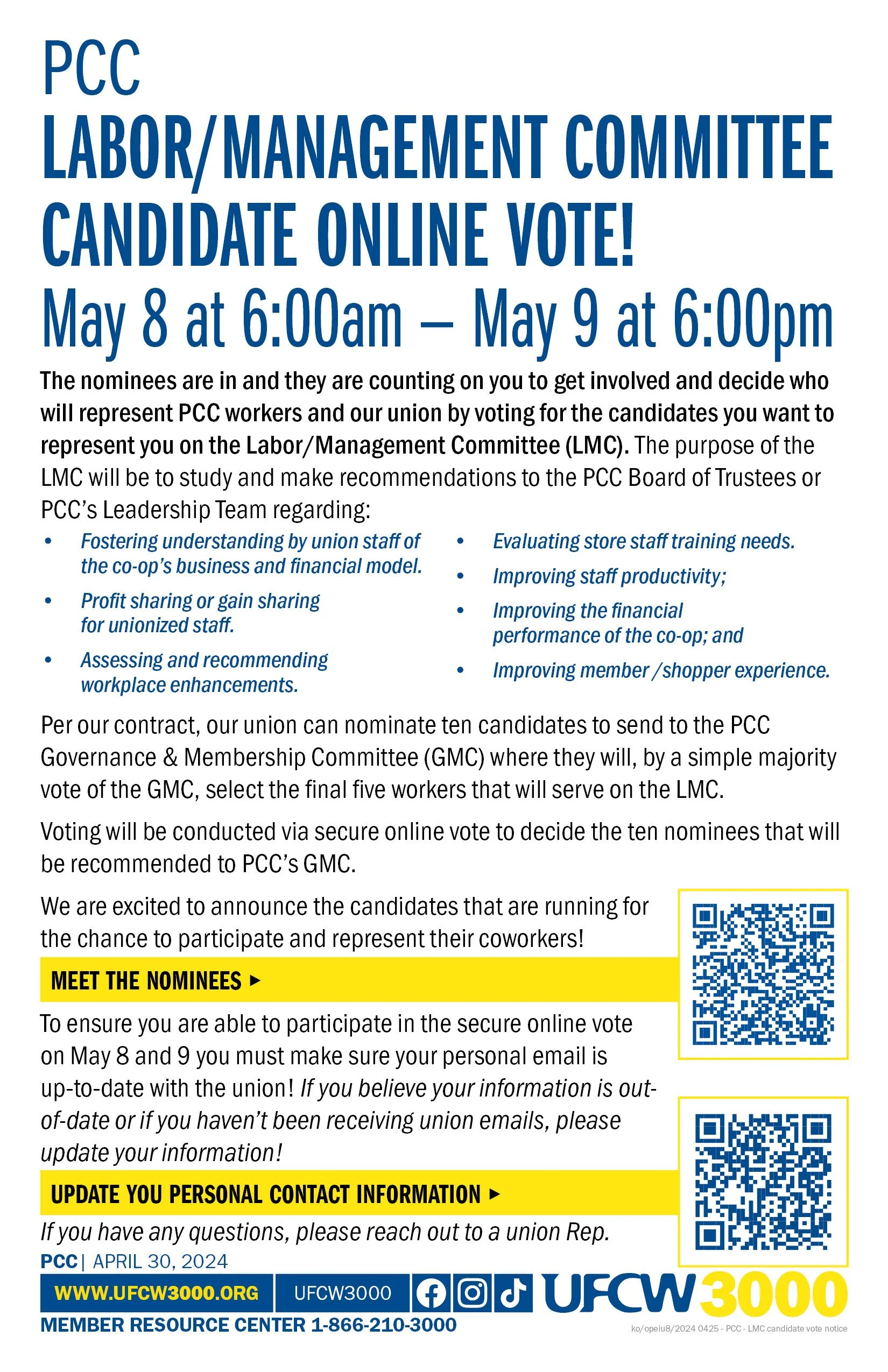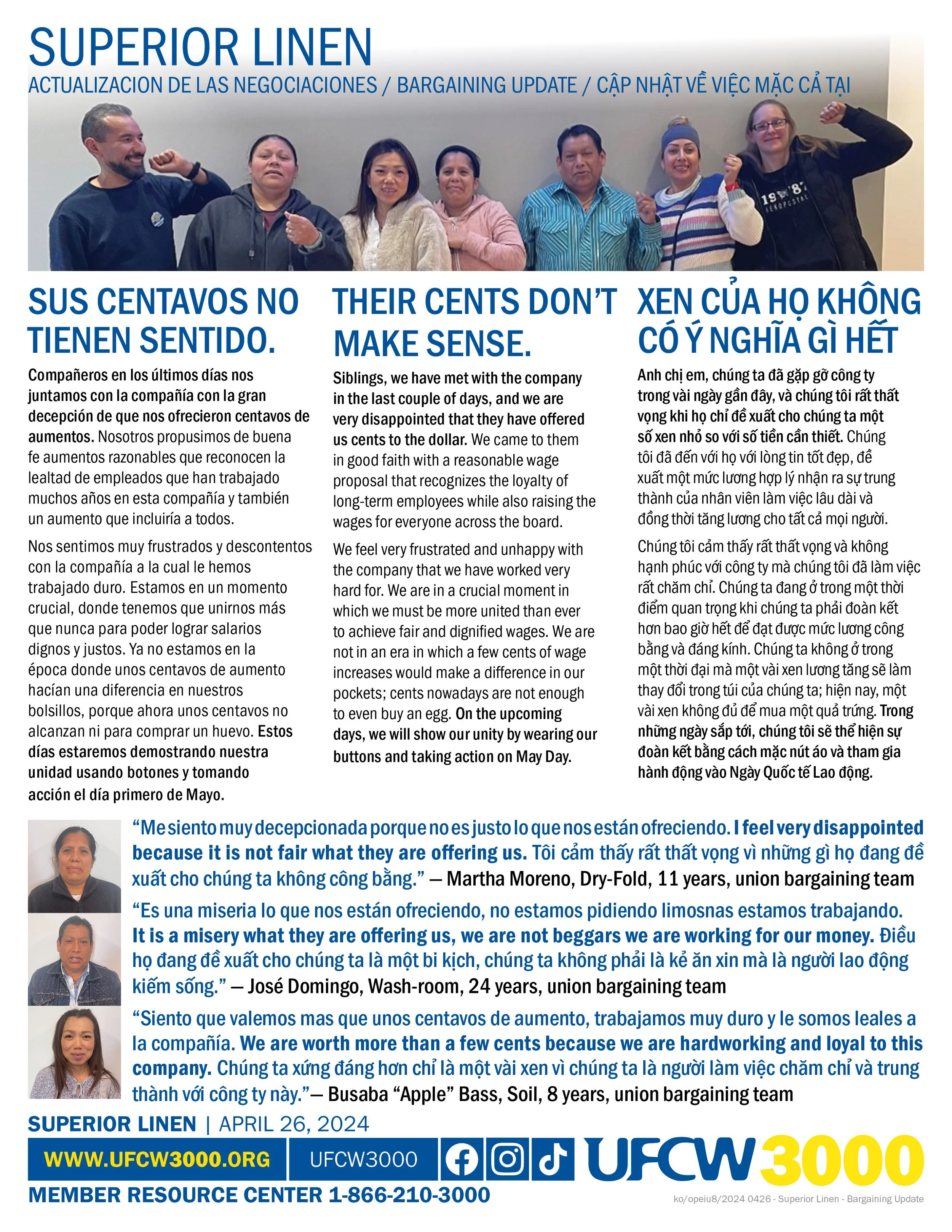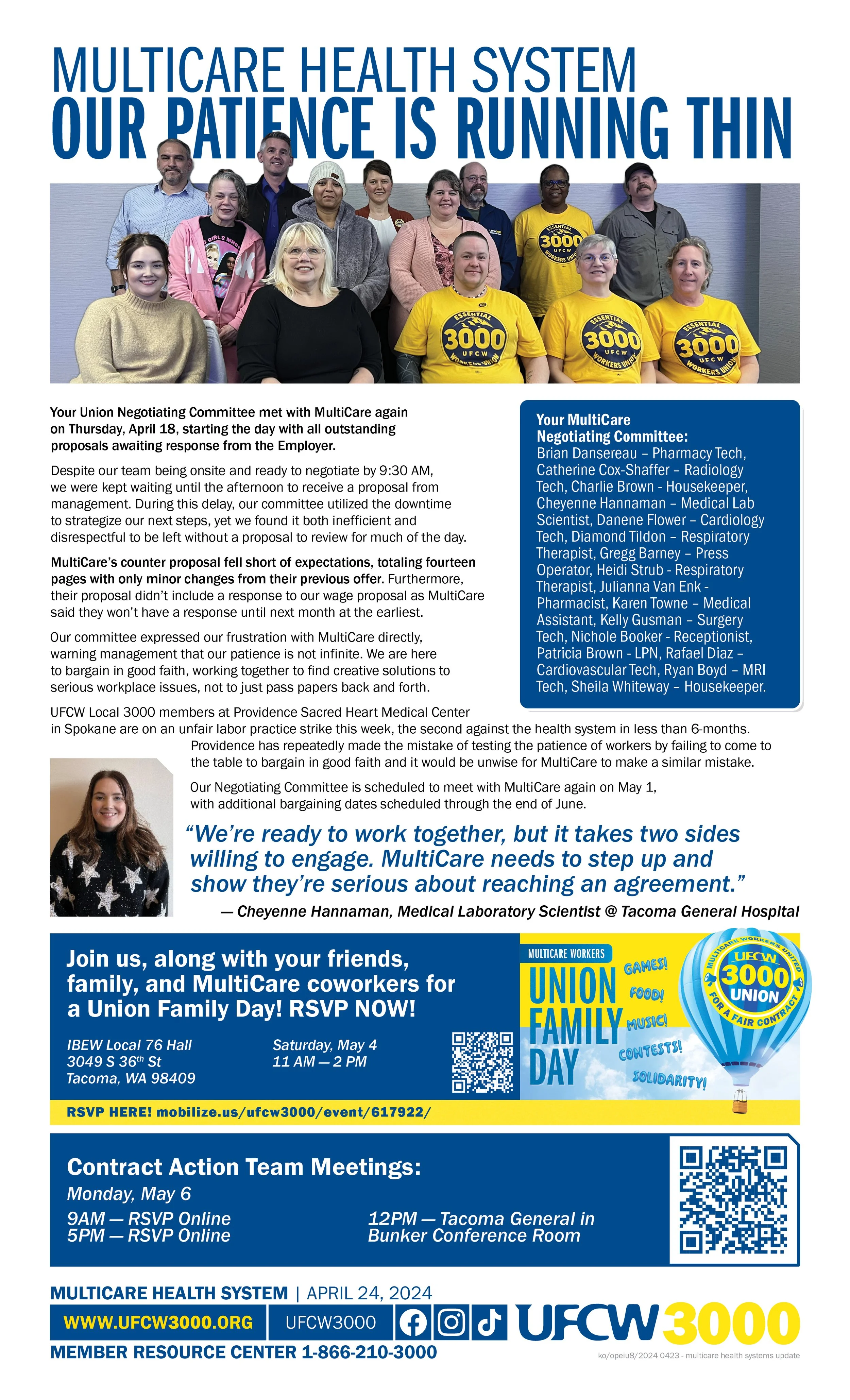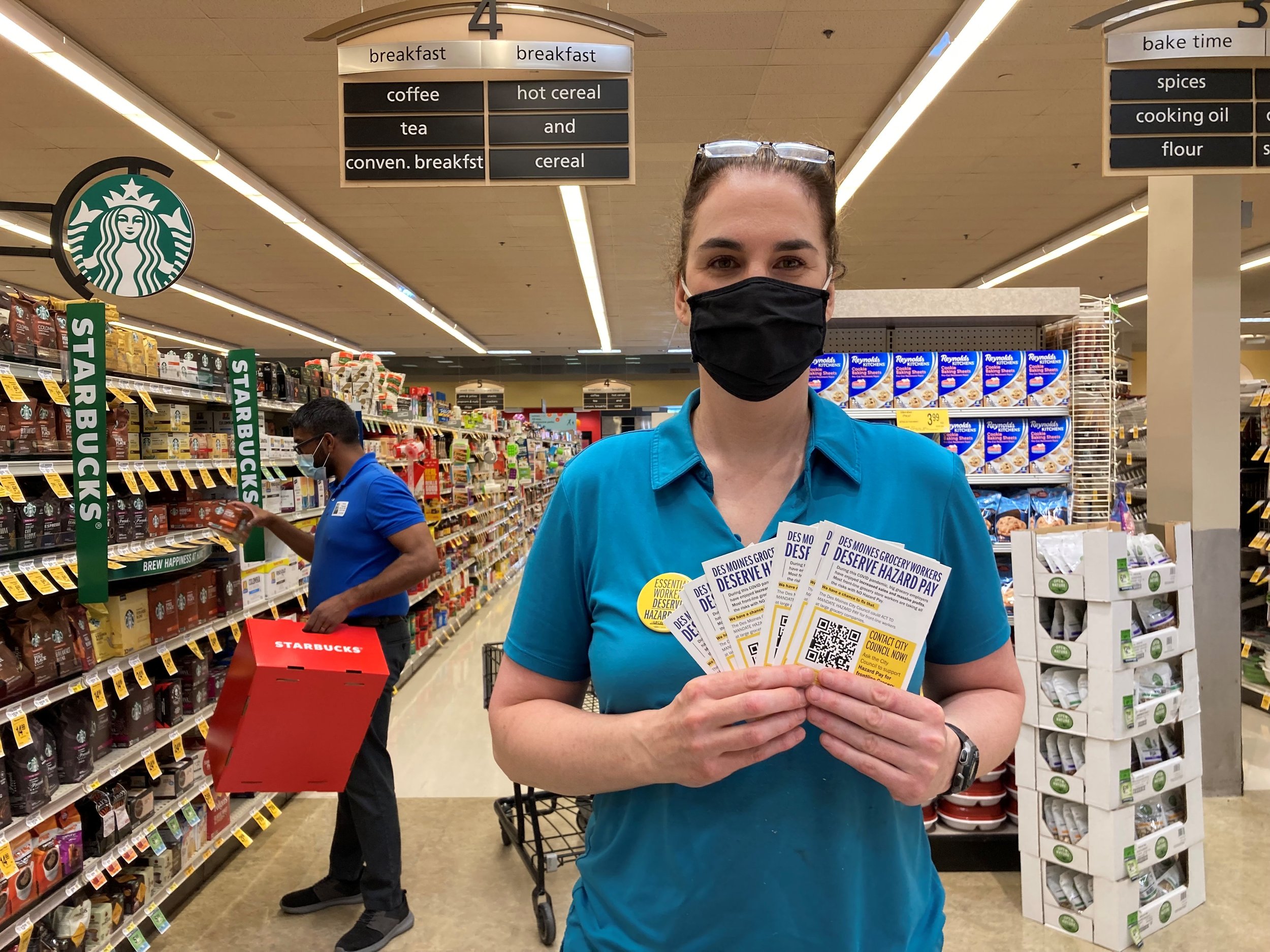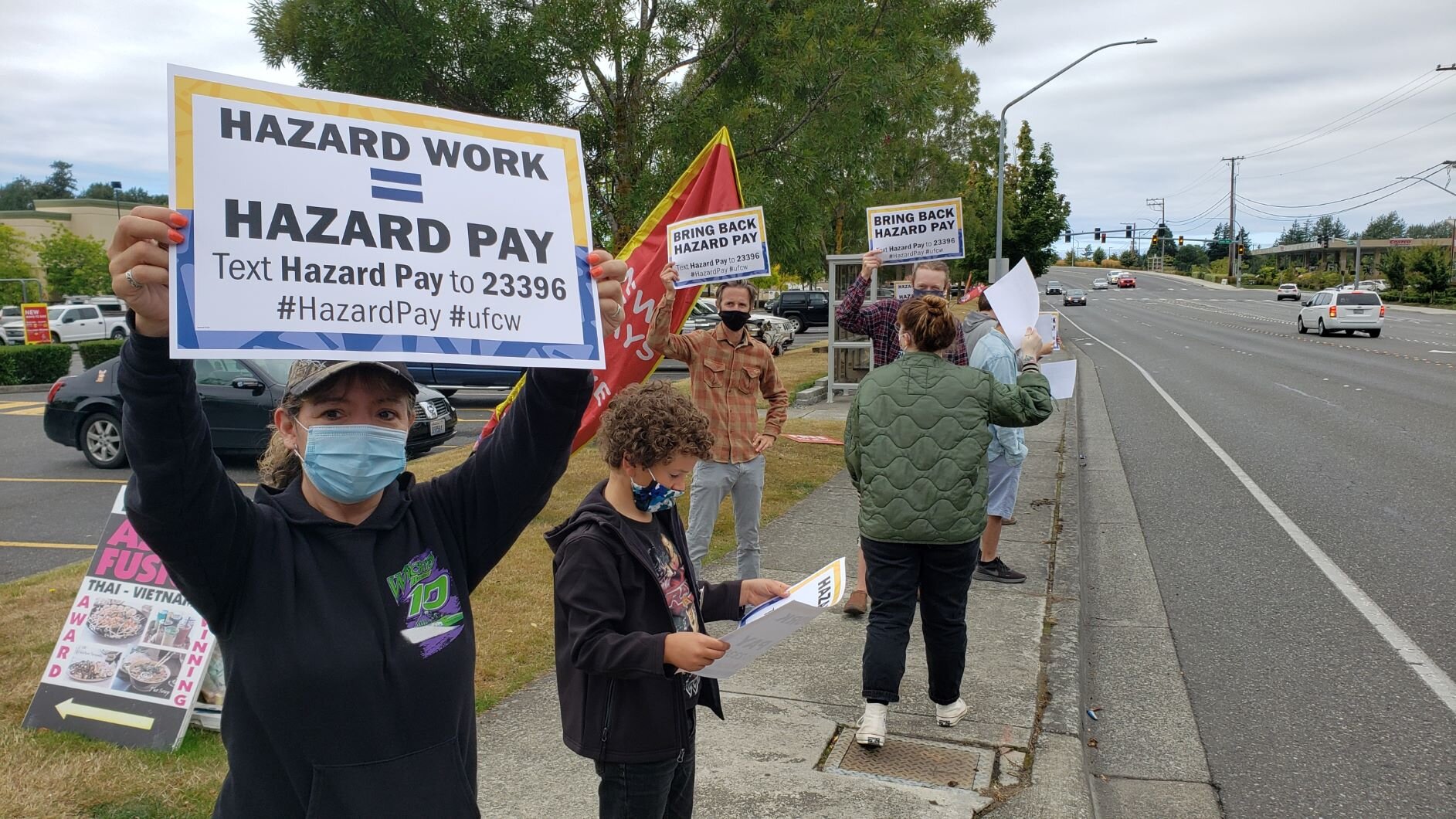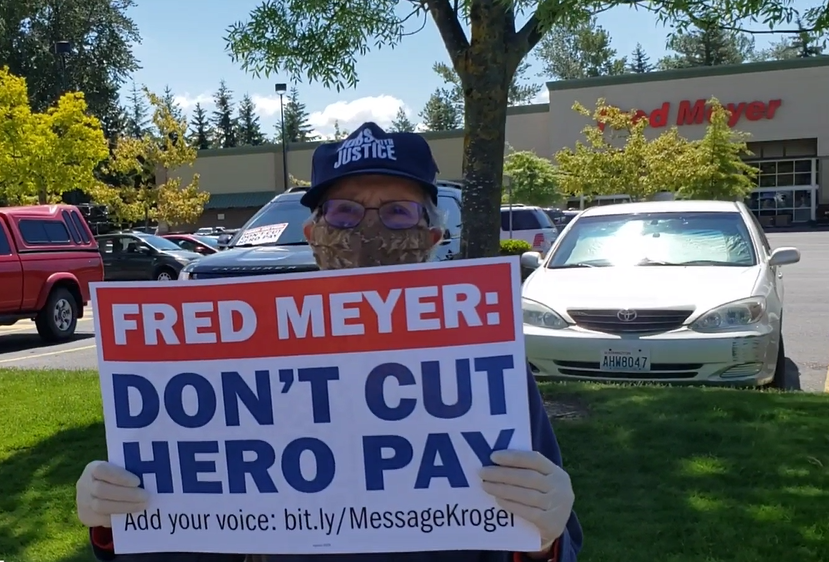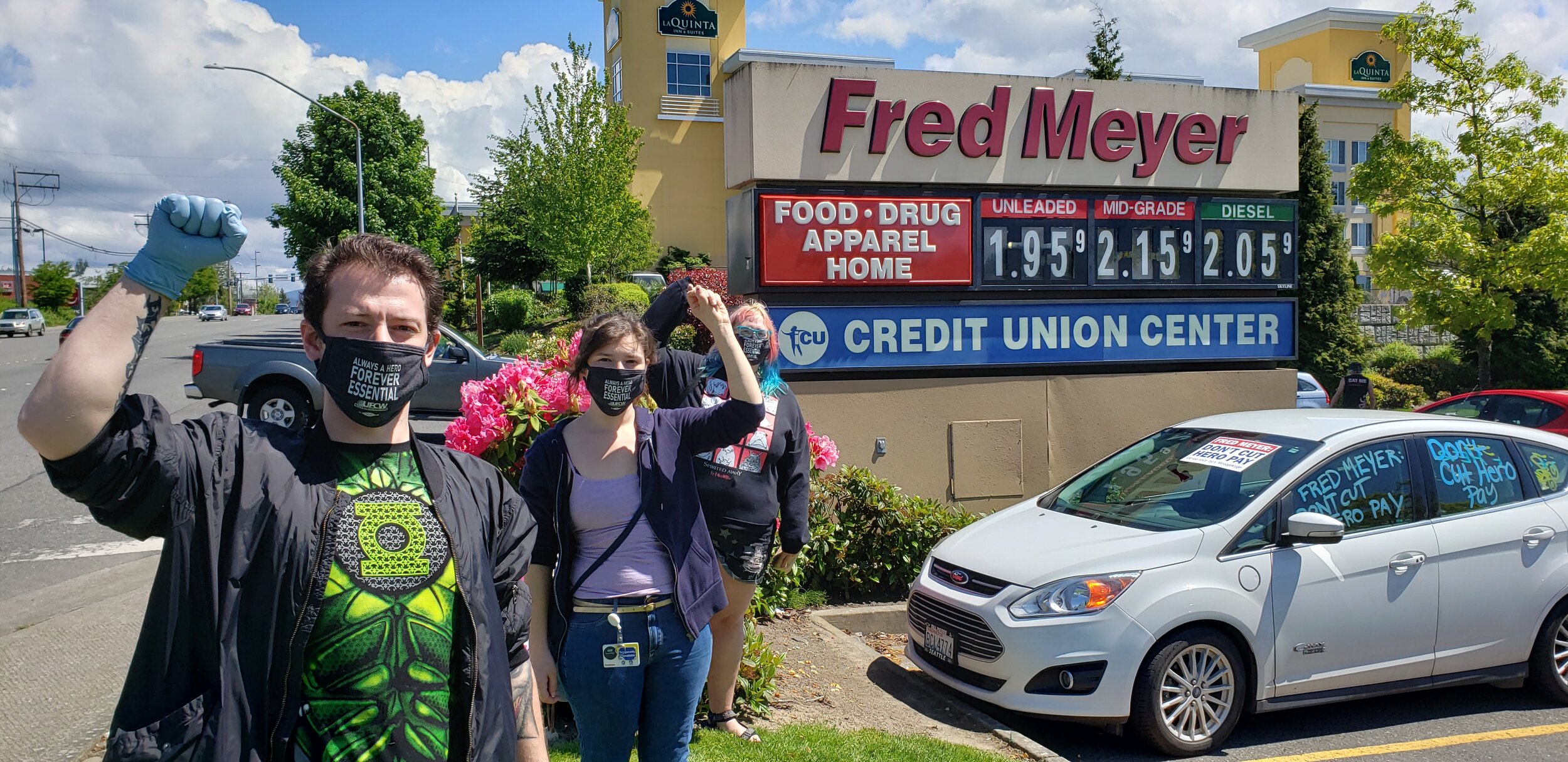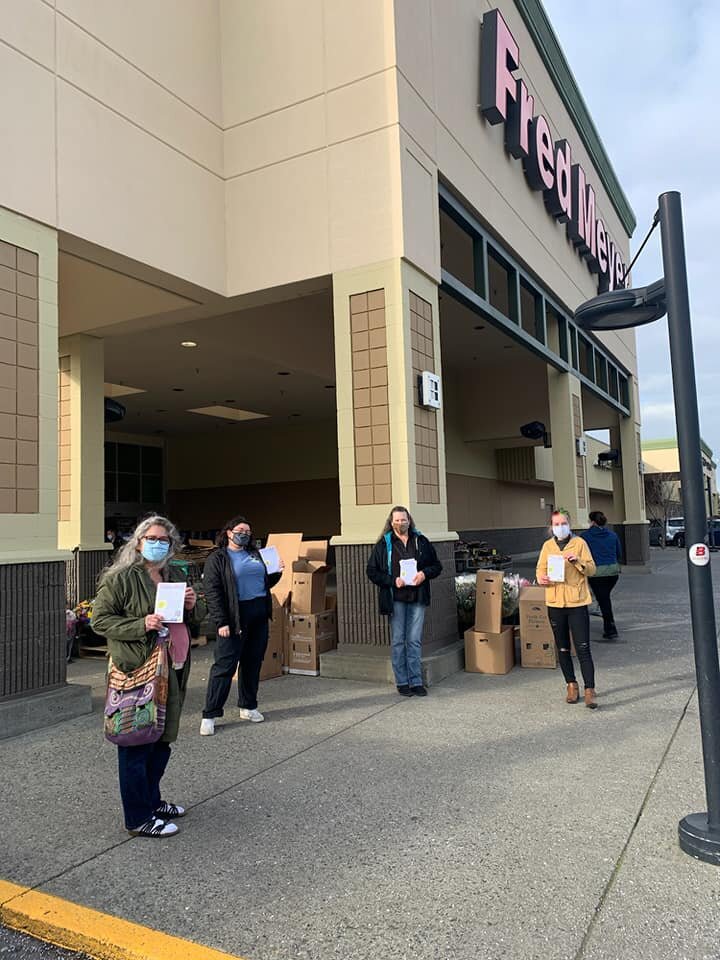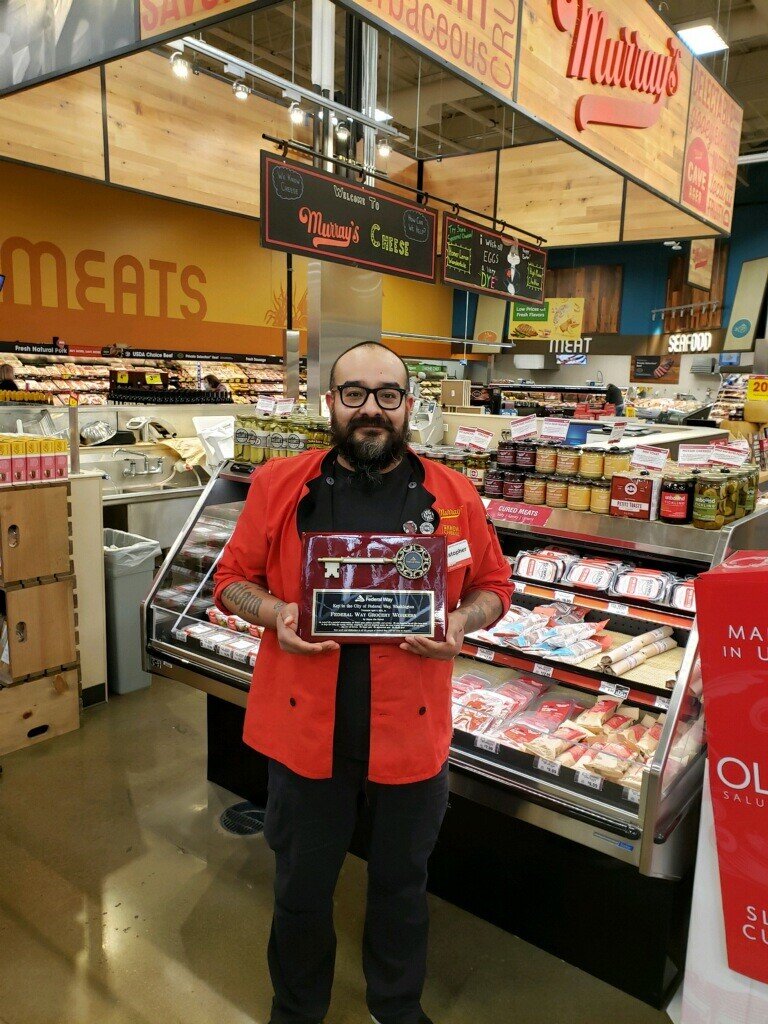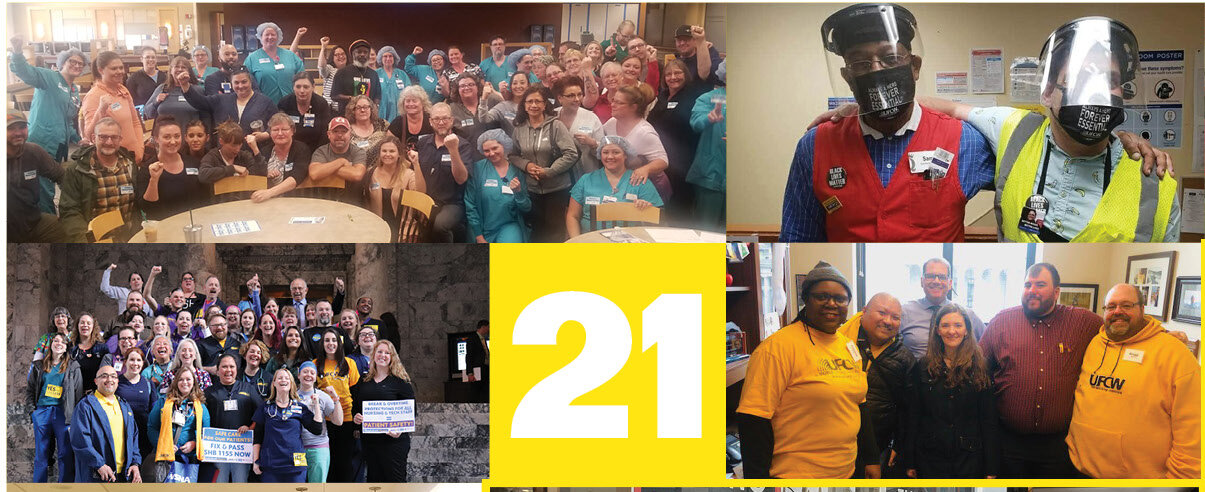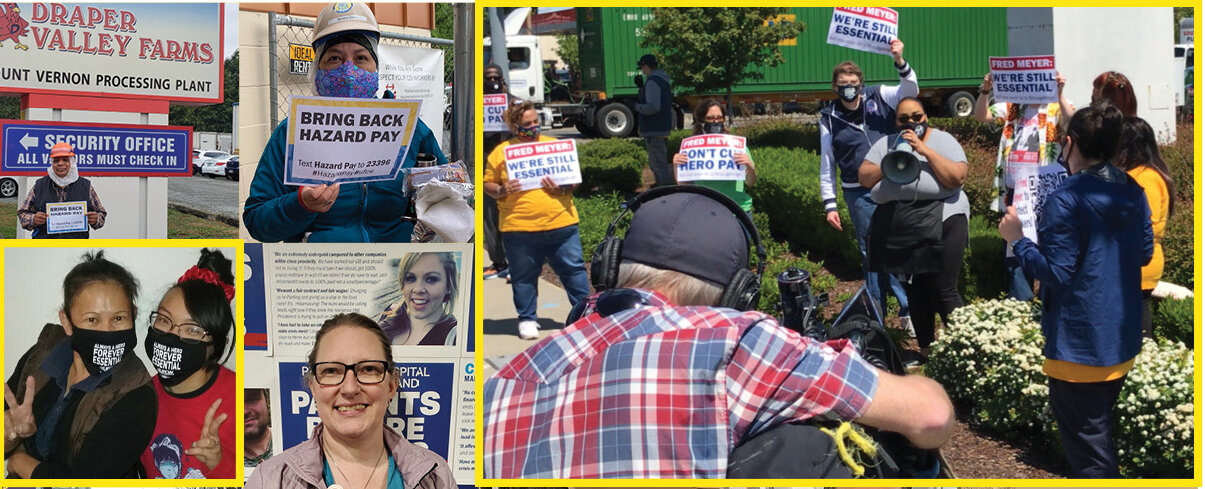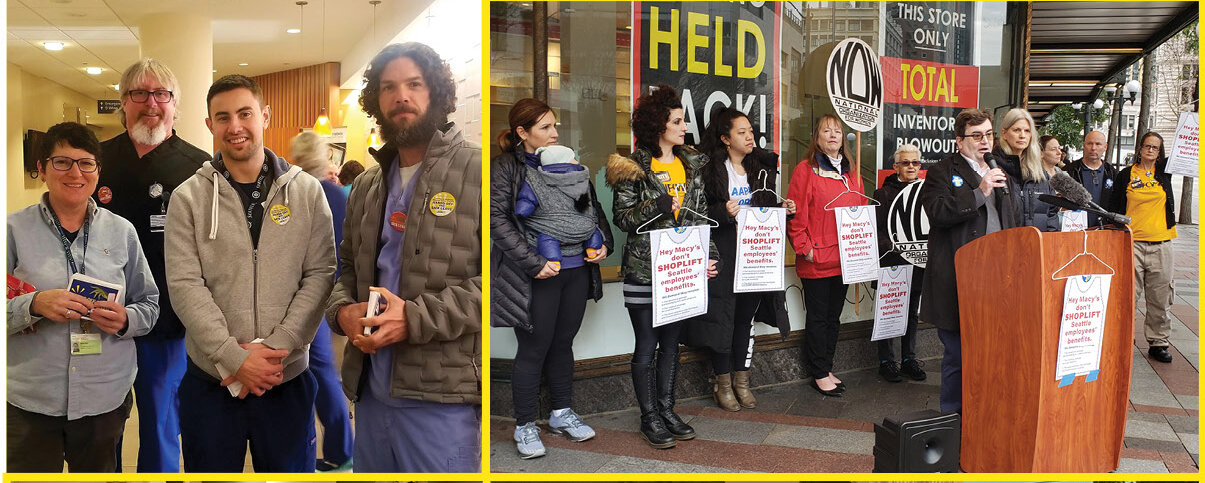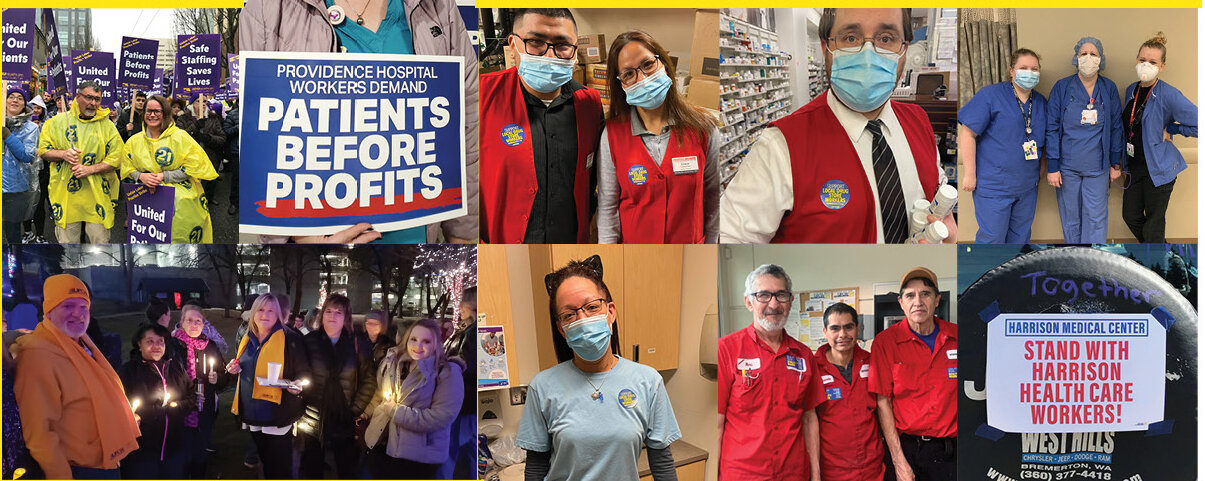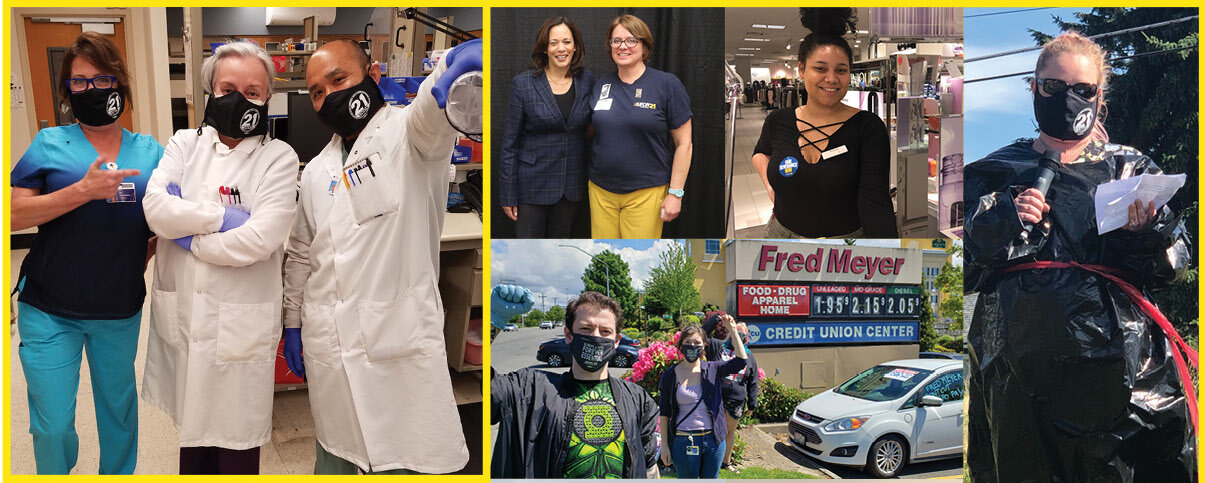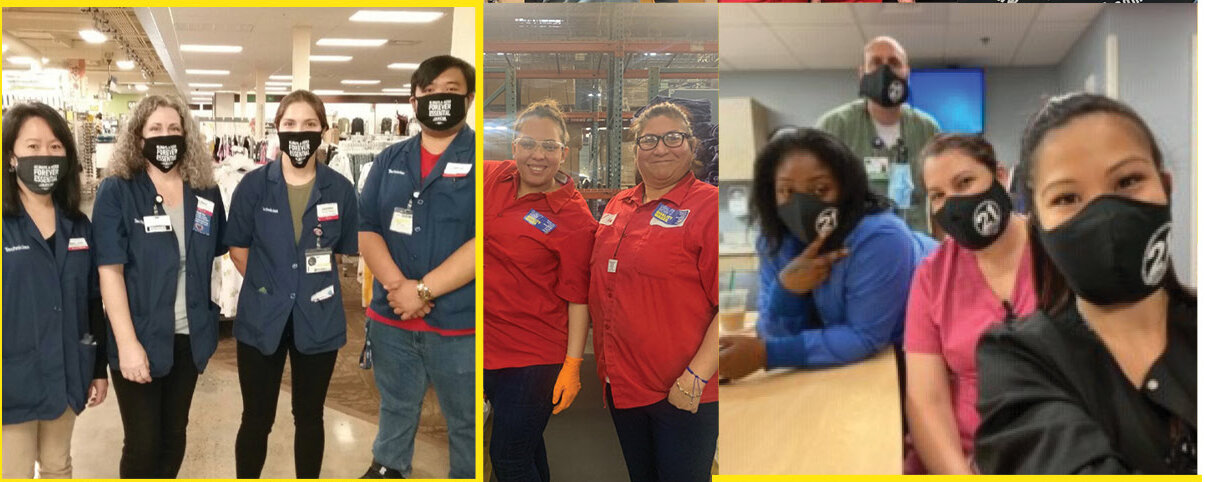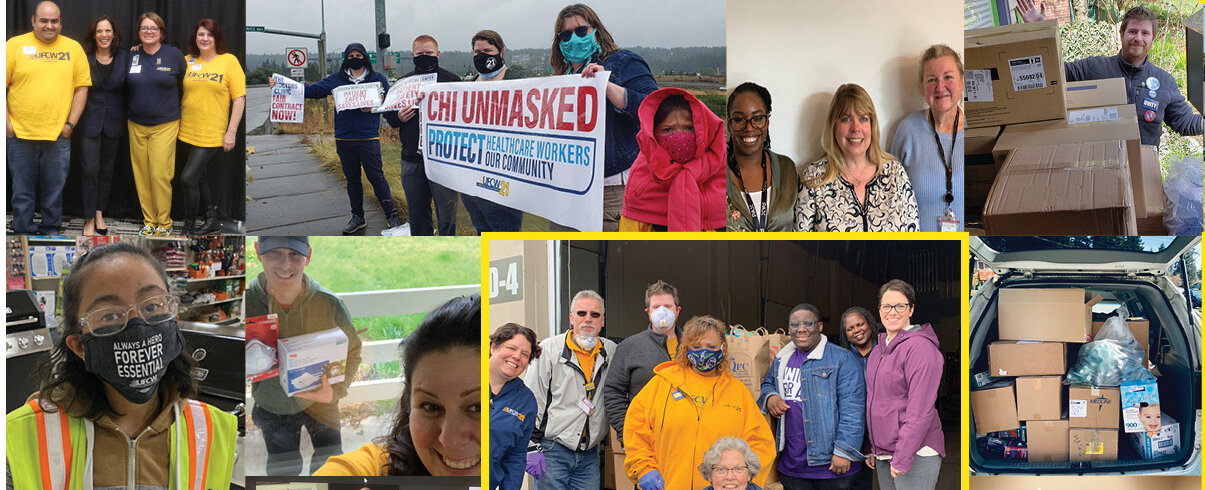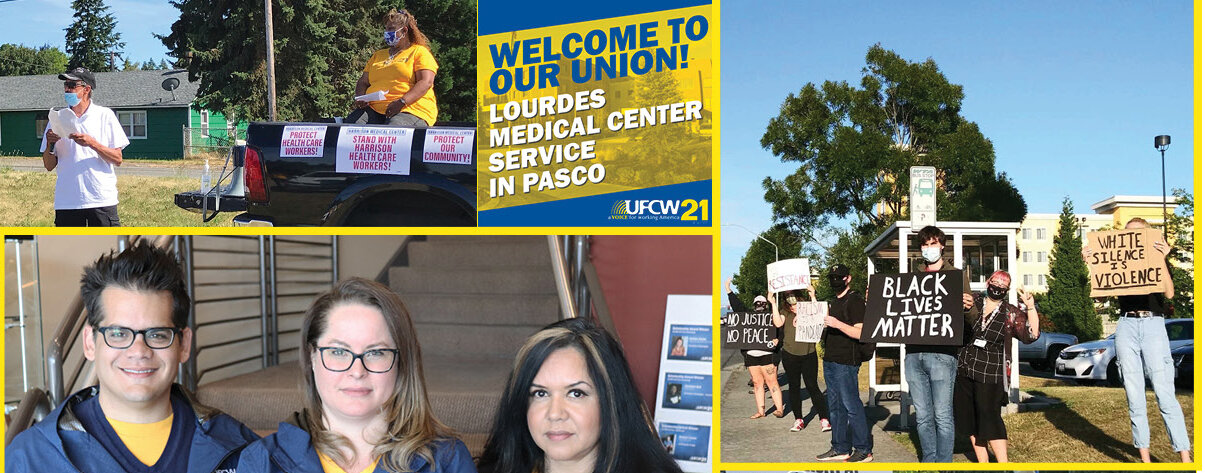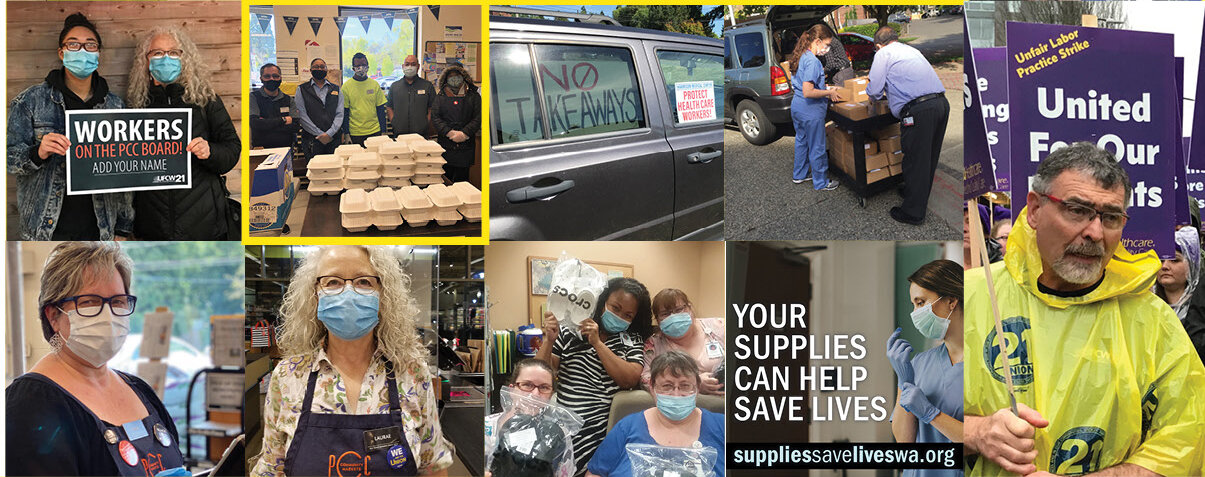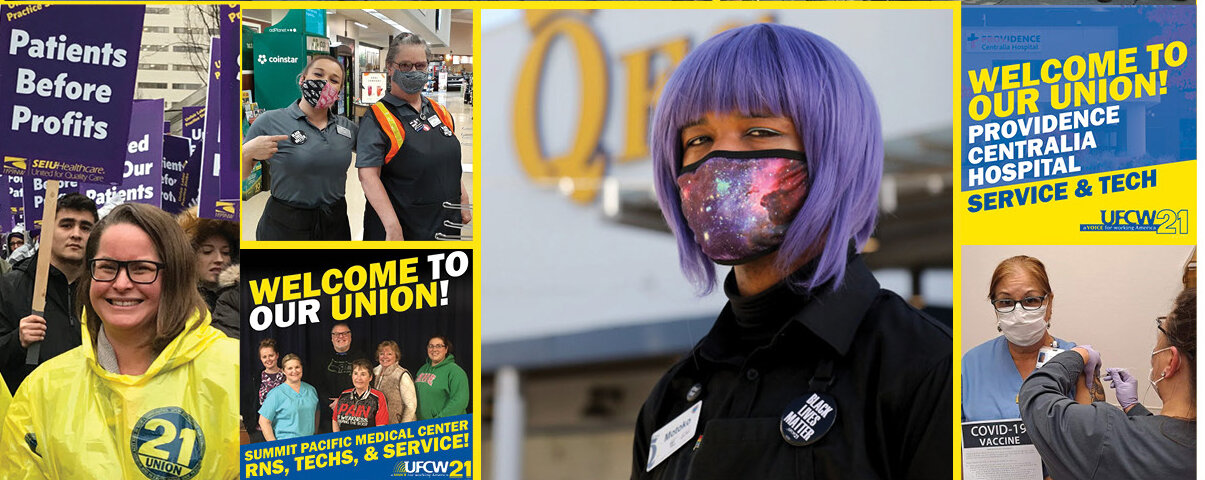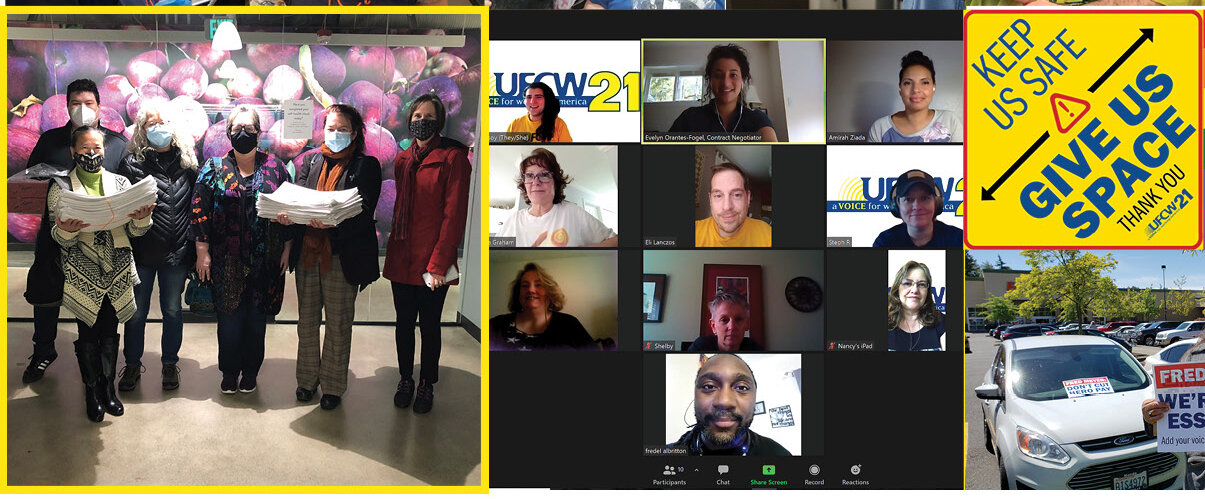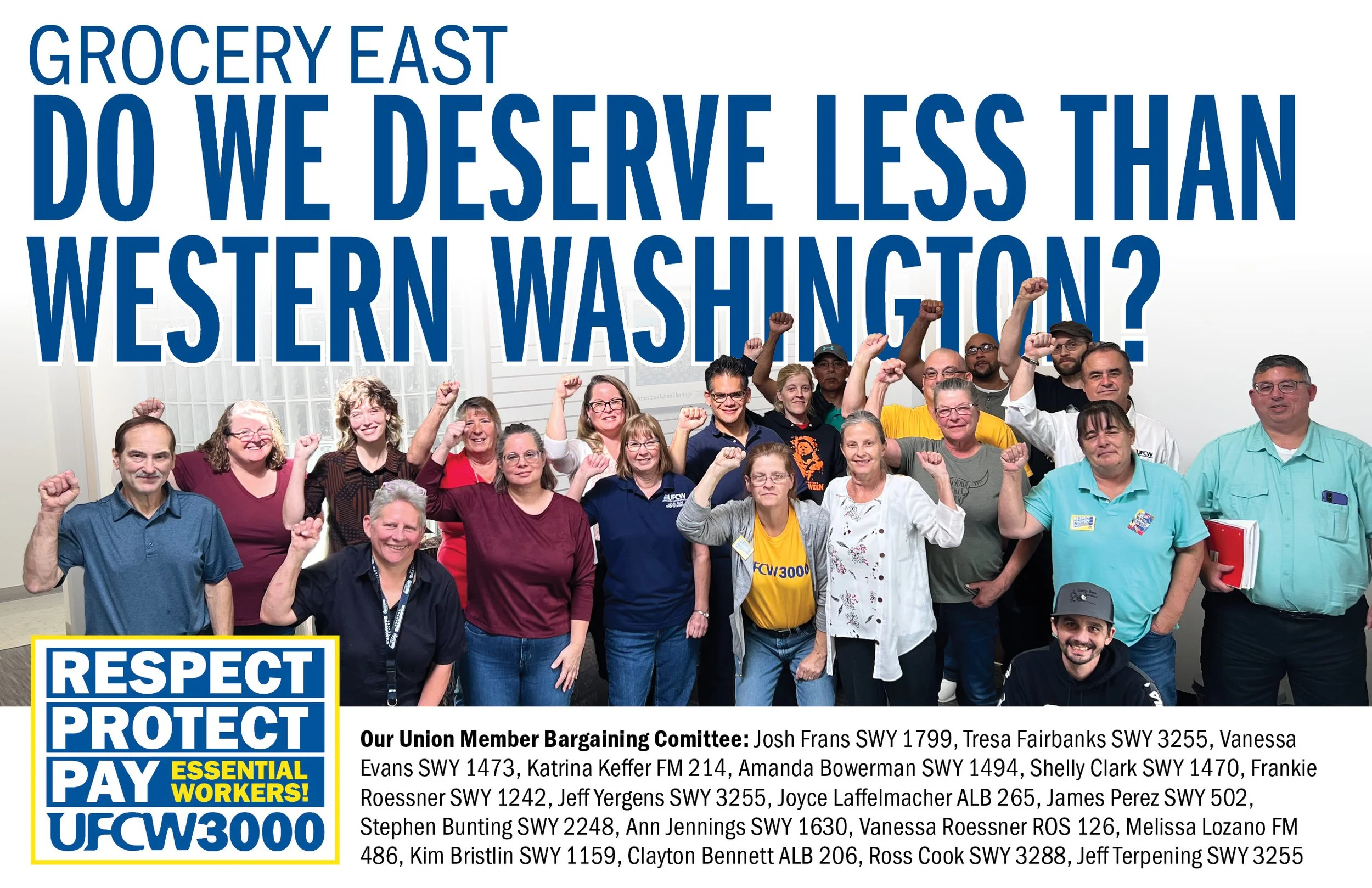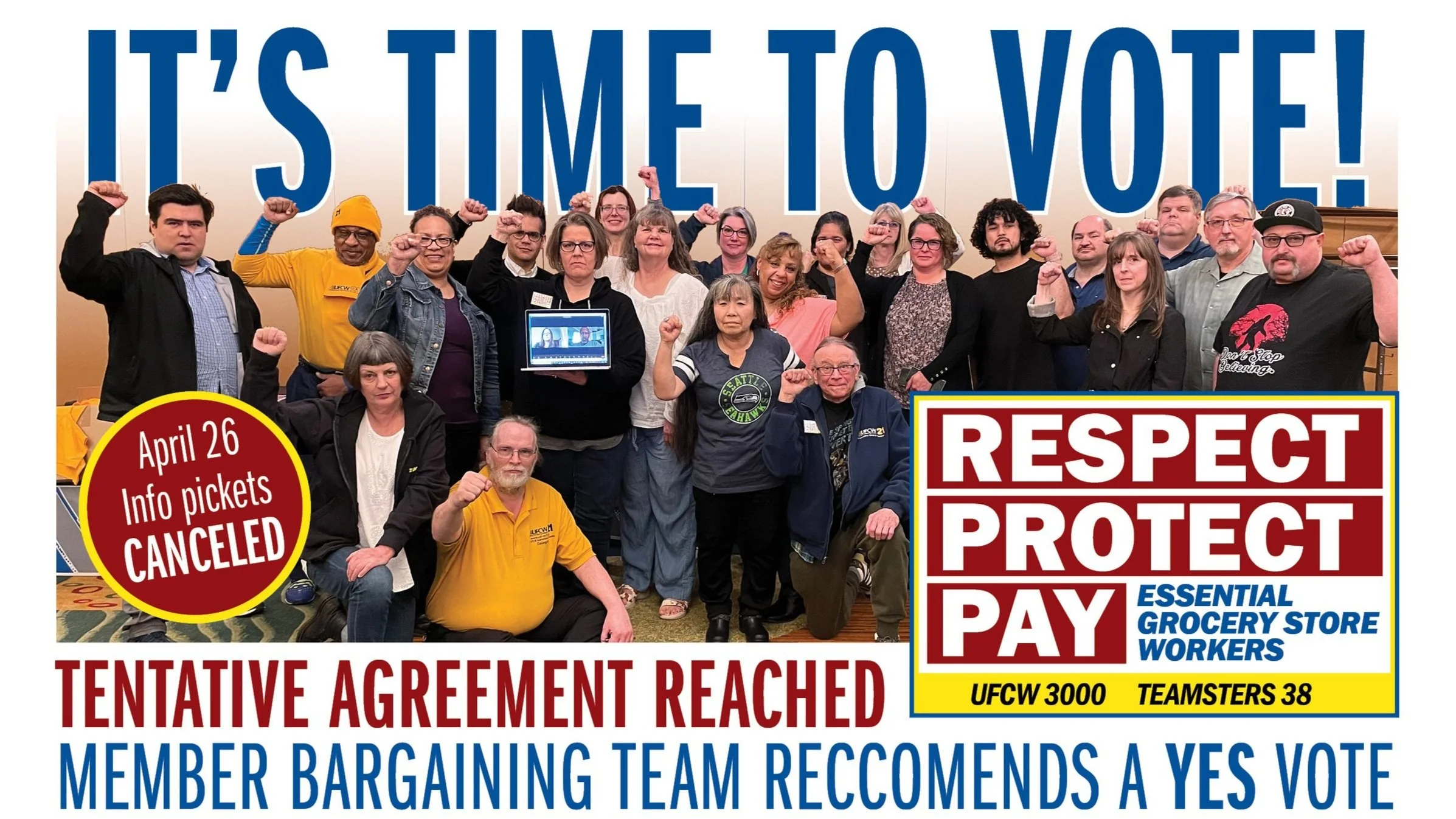FOR IMMEDIATE RELEASE: December 14, 2020
Contacts:
Tom Geiger | tgeiger@ufcw21.org | 206-604-3421
Bridget Bartol | bbartol@skdknick.com | 954-594-0689
Sen. Bernie Sanders (I-VT) Joins UFCW Local 7 and Local 21 in Letter to Kroger CEO Rodney McMullen Demanding Safer Stores and Fair Compensation For Essential Grocery Workers
Unions representing 42,000 Essential Grocery Workers in Colorado, Wyoming & Washington State Urge Kroger To Reinstate Hero Pay of $2/Hour In Pandemic
DENVER – At the beginning of the COVID-19 pandemic, Kroger Co. implemented a Hero Pay bonus of $2/hour for Essential Grocery Workers, calling grocery workers “heroes” because of their extraordinary sacrifice and dedication to the company and its customers during the COVID-19 pandemic. On May 17, 2020, the company stripped away the Hero Pay bonus program and has since relaxed safety protocols in stores. Seven months later, COVID-19 cases are higher than ever before throughout the country, yet Kroger’s employees who risk their health at work went from being treated as Heroes to Zeros by the company.
U.S. Senator Bernie Sanders (I-VT) joined Kim Cordova, President of UFCW Local 7 of Colorado and Wyoming, and Faye Guenther, President of UFCW Local 21 of Washington State, which together represent 42,000 Essential Grocery Workers, sent a letter to Kroger Co. CEO Rodney McMullen, urging him to ensure that workplaces are safe and to reinstate the $2/hr. Hero Pay bonus for all grocery workers across the country.
An excerpt from the letter below:
“You often mention your experience as a stock boy to reaffirm to the public and shareholders that you're committed to seeing things through your customers' eyes. The time has come for you to see the risks through the eyes of your workers. Your inaction only increases the fear and anxiety that our members deal with as they walk into work each day.
“Hundreds of thousands of UFCW members work to keep YOUR stores clean, YOUR shelves stocked, and YOUR business running. Their work has enabled the large increases in sales and higher profits you've reaped since the pandemic began. Yet, they are working in fear, they are working in danger, and they are working without adequate support and respect from their employer, Kroger. They are risking their health and that of their families to keep America's food supply chain running and the country fed. It is time that YOU take care of Kroger's frontline Essential Workers like they are taking care of your customers.”
A PDF of the letter can be found HERE, and the text of the letter is below:
December 14, 2020
Dear Mr. McMullen,
We write to you as UFCW Local Union presidents, representing 30,000 Essential Workers at Kroger Co. stores across Colorado, Wyoming, and Washington State. Together with U.S. Senator Bernie Sanders (D-VT), we hope and expect you are taking substantial time to work with the current and incoming administration to ensure that your grocery store Essential Workers are a priority for a COVID-19 vaccination. We write today to urge you to take the necessary and responsible steps to improve stores' safety and compensate Kroger Essential Workers fairly by immediately reinstating Hero Pay ($2/hr.) to all workers across the country.
The COVID-19 pandemic continues to ravage our communities and stores more than ever and, as we navigate this especially hazardous winter season, it is imperative to recognize the dangers Essential Grocery Store Workers face. Our members, your employees, are at a higher risk of contracting COVID-19, yet these heroes are being denied the Hero Pay you awarded them at the beginning of the pandemic. Kroger's employees went from Heroes to Zeros. As we continue to witness a severe and alarming increase in worker case numbers, store safety must significantly improve to stop the spread. Preventive measures include enforcing mask requirements, reinstating and enforcing strict shopper limits to allow social distancing for all in the stores, improved staffing on all shifts so there is sufficient coverage to enable all workers to take COVID-19 sanitation breaks where they can conduct extra hand-washing and have allotted times to wipe and disinfect all areas of the store.
As a company, you initially recognized the dangers of this virus, implementing a Kroger Hero Pay bonus of $2/hr. in March, you coordinated better staffing for the extra work needed to clean stores, allowing more frequent breaks to wash hands and other safety measures. Yet, case numbers and deaths have risen exponentially since you prematurely claimed that we were "beginning to see a return to normal," and you ill-advisedly relaxed safety protocols and stripped away hazard pay on May 17, 2020. These decisions blatantly disregarded the dangers Essential Grocery Store Workers faced, not just by going into work but also by weakening them financially when dealing with COVID-related hardships, such as lack of childcare due to homeschooling, sick relatives, and additional medical costs.
Since Kroger stripped away Hero Pay, COVID-19 infections among these Essential Grocery Store Workers have exploded among our members. For example, there have been 491 positive cases, a 692% increase, and three deaths, among Local 7 members alone: James McKay, Karen Haws, and Randy Narvaez. As recent COVID cases in Washington have reached record levels, we see cases of grocery workers on a significant rise, and several outbreaks have been reported in just the last two weeks. In some cases, these outbreaks include more than a dozen cases in only one store.
Underneath those numbers, we see the threat to communities of color, which make up a majority (50%) of our nation's Essential Workers-- and an even more significant proportion of the food and agriculture workforce.
You often mention your experience as a stock boy to reaffirm to the public and shareholders that you're committed to seeing things through your customers' eyes. The time has come for you to see the risks through the eyes of your workers. Your inaction only increases the fear and anxiety that our members deal with as they walk into work each day.
Hundreds of thousands of UFCW members work to keep YOUR stores clean, YOUR shelves stocked, and YOUR business running. Their work has enabled the large increases in sales and higher profits you've reaped since the pandemic began. Yet, they are working in fear, they are working in danger, and they are working without adequate support and respect from their employer, Kroger. They are risking their health and that of their families to keep America's food supply chain running and the country fed. It is time that YOU take care of Kroger's frontline Essential Workers like they are taking care of your customers.
Every day wasted is another day our members risk contracting COVID-19 at a Kroger store. Another day, our members are not paid fairly for the dangers they face conducting essential work. Kroger must reinstate Hero Pay immediately. Kroger should be a leader by ensuring their profits, made possible by Kroger's employees, are at least partially used to keep them and our shoppers safe and secure.
That is why we call on you, Kroger CEO Rodney McMullen, to reinstate Hero pay immediately because, as you stated, Essential Grocery Store Workers are heroes. They were heroes at the beginning of the pandemic, and they continue to be the unsung heroes keeping Kroger and the country moving forward.
Sincerely,
U.S. Senator Bernie Sanders
Kim Cordova, UFCW Local 7 President
Faye Guenther, UFCW 21 President
# # #
Local 7, the largest Union in Colorado, is affiliated with United Food and Commercial Workers International Union, which represents over 1.3 million workers in the United States and Canada, and is one of the largest private sector Unions in North America. UFCW members work in a wide range of industries, including retail food, food processing, agriculture, retail sales, and health care. Facebook | Twitter | Instagram
UFCW 21 represents over 46,000 workers in grocery store, retail, health care and other industry jobs across the state of Washington






